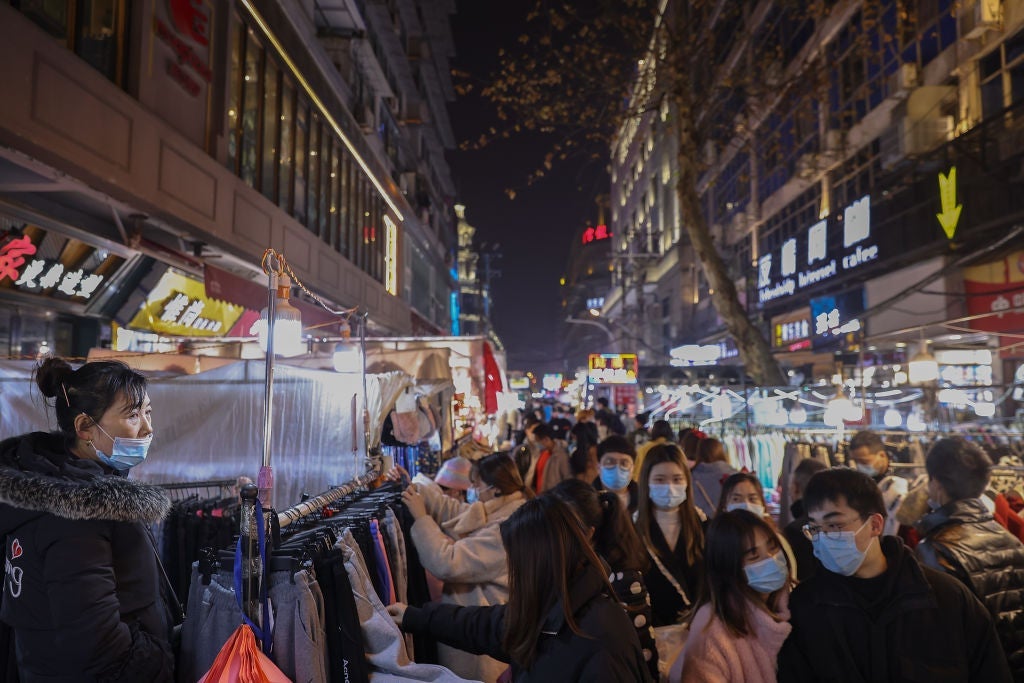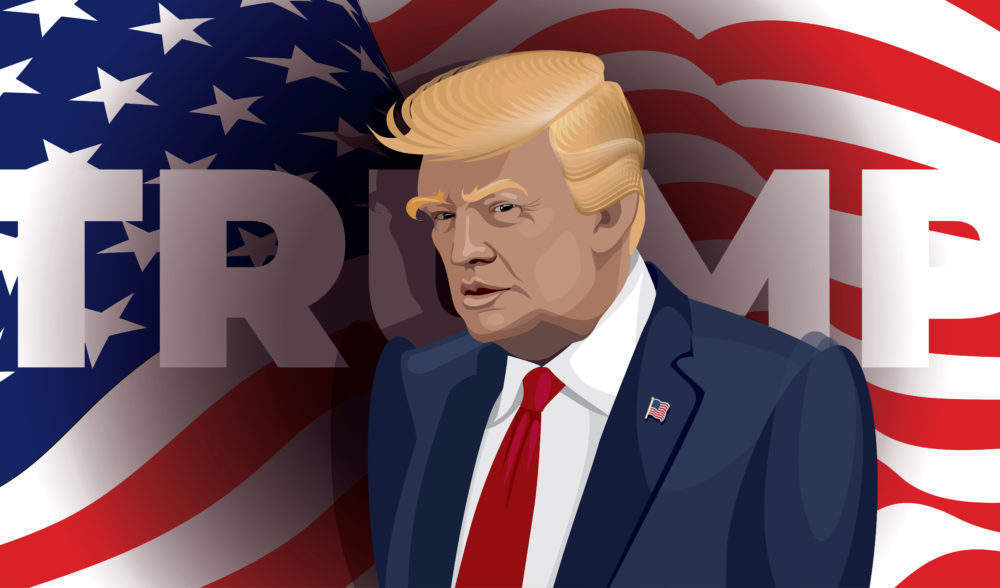

“When I left Wuhan, it was like a zombie apocalypse or something,” says Spencer Cases, an American expat who was evacuated from the Covid-struck city in early 2020.
“It was New Year’s Eve when I first heard about a strange disease going around Wuhan. Things then escalated so quickly. Everyone started wearing masks, then we couldn’t leave the house. We didn’t know what was going on; imagine how dystopian [that felt]. I remember intense smog and rumours spreading that it was from the crematoria,” adds Cases, who has now returned to the city for his postdoctoral studies at Wuhan University.
From militant lockdown to pool parties
Wuhan, where Covid-19 is widely believed to have originated, entered lockdown in late January 2020. For the city’s ten million inhabitants, it was an unrelenting 76-day experience.
[Wuhan’s lockdown] was extremely painful and invasive, but also very effective. Spencer Cases, student
“I have a couple of colleagues here who went through the very, very strict part of the lockdown where they were literally locked inside their communities with razor wire for two months. It was extremely painful and invasive, but also very effective,” says Cases.
Although the vast majority of China’s Covid fatalities occurred in the Wuhan region – with about 4,500 deaths, according to government statistics – the city (and country) has had the virus under control since last April. While much of the world was in the throes of lockdown for the remainder of 2020, residents of Wuhan were enjoying pool parties and other facets of pre-Covid life.
How well do you really know your competitors?
Access the most comprehensive Company Profiles on the market, powered by GlobalData. Save hours of research. Gain competitive edge.

Thank you!
Your download email will arrive shortly
Not ready to buy yet? Download a free sample
We are confident about the unique quality of our Company Profiles. However, we want you to make the most beneficial decision for your business, so we offer a free sample that you can download by submitting the below form
By GlobalData“In terms of my lifestyle, things seem just as normal as they were before the pandemic,” says Mark Henshaw, a Canadian business owner living in Wuhan. “Things are moving. Traffic patterns are pretty much the same. We go to restaurants, movies and malls. That said, there are fewer large events than before.”
Widespread mask-wearing remains in Wuhan, while Covid monitoring is part of everyday life. “I have to check my temperature and put it into two different apps, daily,” says Cases. “If I forget, I don’t get my ‘green’ QR code and I’m literally locked out of the university, public transport, malls and many other places. It’s a city-wide programme.”
Getting into Wuhan is not a breeze
While normality has returned to many parts of Wuhan, travel remains limited as China’s borders remain closed for international tourism. Wuhan has subsequently reoriented its enormous tourism market to domestic visitors – and with some degree of success. During a public holiday in October 2020, it received more tourists than any other Chinese city, as people flocked to the ‘hero city’, as it is portrayed by China’s government media. Nonetheless, domestic tourism across the country approximately halved in 2020, according to Statista.
While international tourism to Wuhan is currently non-existent, the Chinese government is expected to reopen its national borders later in 2021. In anticipation, Wuhan’s tourism board has been pumping out English-speaking content, possibly as part of an effort to mend the city’s tarnished reputation as the ‘birthplace of Covid’.
That said, Covid has certainly put Wuhan on the map, so to speak, and if the old adage that ‘all publicity is good publicity’ is true, then the city’s notoriety may become a boon for its international tourism appeal, in the medium to long term.
While Wuhan remains a no-go for tourists, expats have also faced strict travel bans. “From what I can see, the majority of foreigners who left Wuhan during the lockdown have found it difficult to return, even if they have a valid work permit,” says Henshaw. “But if you work for a powerful foreign company that has the right connections and money, then you’re fine. It’s not so easy if you’re a lone foreign teacher.”
Business as usual in Wuhan (sort of)
Wuhan is probably best known to expats and foreigners as a centre for education. With 1.2 million students, it is the world’s largest student city, and subsequently attracts large numbers of foreign pupils and teachers.
The city is also a destination for hundreds of foreign companies, especially in pharmaceuticals, ICT and manufacturing – namely automotive and household appliances. Big names present in Wuhan include Citroën, Nissan, Honda, General Motors, IBM, HSBC, Siemens, Walmart and Ericsson.
Other than its large talent pool, Wuhan’s key attraction for foreign direct investment lies in its location as a key transportation hub connecting all four corners of China (by air, rail and water).
Although Wuhan has been ‘open for business’ since May 2020, the aftermath of Covid-19 saw the city’s economy contract by 5% in 2020, according to the China-Britain Business Council (CBBC). This contrasts China’s national GDP growth of 2.3% in 2020. Of China’s major trading provinces, Wuhan’s region (Hubei) saw the largest dip in trade in the first three quarters of 2020.
How foreign investors have been affected by Wuhan’s woes
Fast-forward to March 2021, and things are looking up. “Business is very much back to normal in Wuhan now and across Hubei province,” says Kiran Patel, senior director at the CBBC. “While the international footprint is modest compared with other cities and there are undoubted reputational issues for driving new investment to the region, the overall picture remains generally positive and there have been some notable British success stories over the past year.”
For example, one of China’s largest automobile manufacturers, Dongfeng, entered a joint venture with BP, while the Zaha Hadid industrial park area on Wuhan’s riverbank will be completed this summer, alongside other significant infrastructure projects involving British investment.
Wuhan’s all-important auto sector, while not quite back to full strength, has shown strong signs of recovery. Domestic production has already reached pre-Covid levels once again, but international production is still down, according to Patel. Wuhan’s education sector has been adversely impacted, an area in which UK companies and educational institutions have a strong footprint.
While there are undoubted reputational issues for driving new investment to the region, the overall picture remains generally positive and there have been some notable British success stories over the past year. Kiran Patel, CBBC
“For companies here already, business was inevitably impacted during the lockdown and in the immediate aftermath of the outbreak,” says Patel. “However, the CBBC and UK government’s engagement with businesses overall has demonstrated that some companies have benefitted from local policy support and financial subsidies in this period of recovery.”
Across the spectrum of Wuhan’s key sectors, the speed of recovery is dependent on the reopening of China’s borders and thereby, the normalisation of international trade and travel.
“Time will tell to what extent the investment appeal of Wuhan and the wider Hubei region has been impacted,” says Patel. “However, under a new party leadership that has backing from Beijing, the local government is receiving central government support to rebuild and restimulate the economy, and is able to offer policy incentives to increase the city’s attractiveness to investors.
“A clear vision has also been set emanating from China’s 14th Five-Year Plan. UK companies have benefitted from government support and we are likely to see the continued upgrading of infrastructure and, in line with national policy, local government remains committed to opening up more sections of the local economy to foreign participation, especially in areas that support local priorities such as intelligent manufacturing, healthcare, technology and tourism.”
‘Our company is in a better place now’
One of the key foreign players in Wuhan’s burgeoning pharmaceutical industry is CSL Behring, a leading US biotech company that has operated a high-tech plasma collection facility in the city for several years.
Behring’s operations came to a complete halt during Wuhan’s lockdown in early 2020, but the company has bounced back fast.
We went through a hard time all together, but the authorities showed us as a company that we can really trust them. You can’t buy trust with money. Özcan Campinar, CSL Behring
“The pace of Wuhan’s Covid recovery, thanks to an intense lockdown, helped us a lot to restart our operations quickly,” says Özcan Campinar, senior director of CSL Behring’s Wuhan facility. “We were really able to transfer to our global sites the crisis management experience we gained in Wuhan. This gave us a big advantage.”
To clarify the scale of this advantage, it is worth mentioning that Behring has more than 27,000 employees in facilities around the world. The company did not experience difficulties in getting its expat workers back into China. “To return to work in China you needed a special invitation from the Chinese authorities,” says Campinar. “Due to the nature of our industry, we were seen as a high priority. And for me personally, as a German citizen, the relationship between China and Germany is quite good. So this made the process even smoother.”
Overall, the support that Behring received from the local government during the pandemic was “magnificent”, relays Campinar. “I would even say that we are now in a better place than before Covid. We went through a hard time all together, but the authorities showed us as a company that we can really trust them. You can’t buy trust with money.”
Berhing intends to ramp up its investments in Wuhan and the region, and is currently modernising its production lines and equipment. “We very much still trust that China will be a success story for us. Wuhan, in particular… its size, human resources and location. It was the right choice to be here,” concludes Campinar.






